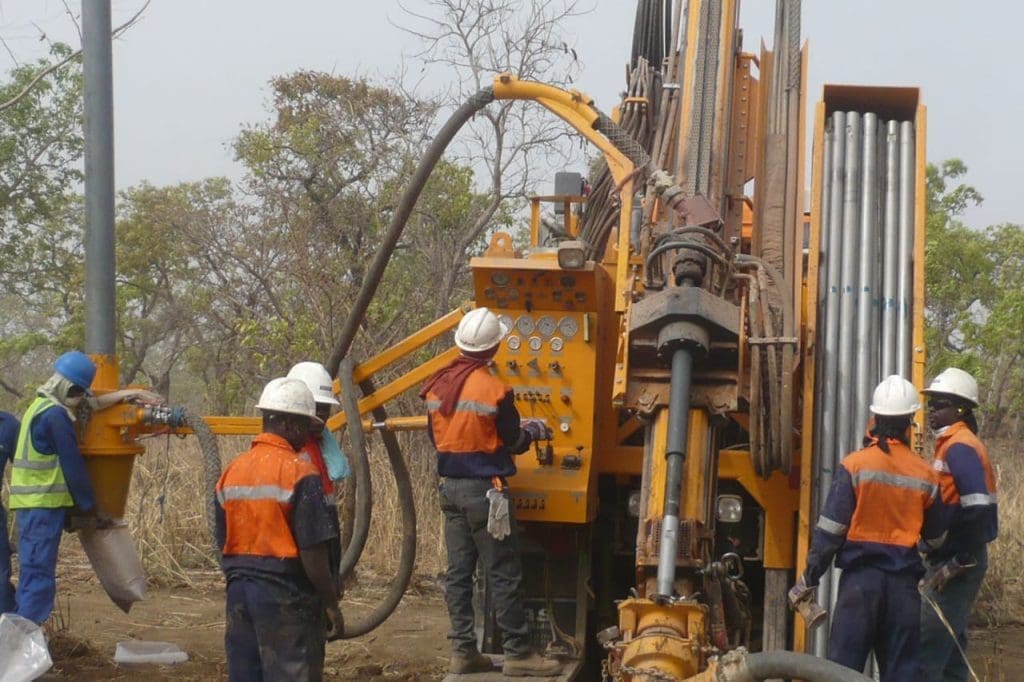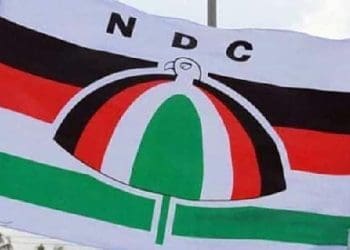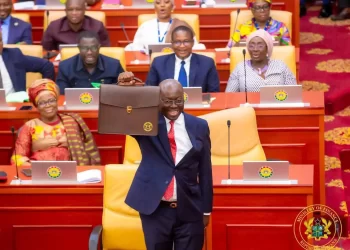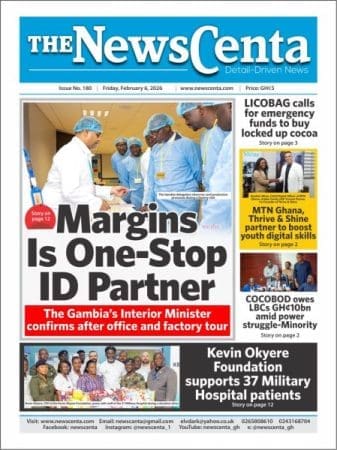More details have emerged regarding the raging controversy between Azumah Resources Ghana Ltd and Engineers & Planners Co. Limited (E&P) over the ownership of the Black Volta Gold Mine located in Wa in the Upper West Region.
The dispute has escalated to the International Chamber of Commerce (ICC), where it is currently the subject of litigation.
While E&P has announced a $100 million Acquisition Facility Agreement with the ECOWAS Bank for Investment and Development (EBID), Azumah Resources claims it has terminated the sale agreement with E&P.
The $100 million facility secured by E&P was explicitly structured not only to fund the acquisition of the Black Volta Project but also to support infrastructure development, machinery procurement, and workforce training to advance the mine to full operation.
Azumah, however, declared that it is now “in a position to proceed with construction at pace without E&P,” stating that it has worked “closely with our shareholders, the Government of Ghana, the Ministry of Lands and Natural Resources and the Minerals Commission” to secure all necessary regulatory authorisations and financing.
The origins of the dispute
The Government of Ghana granted a lease to Azumah Resources Ghana Ltd for a gold concession in the Upper West Region in 1992.
The company is owned by an Australian parent entity.

Between 1992 and 2022, Azumah failed to commence exploration activities—contrary to the terms of the lease agreement.
By 2022, Azumah had accrued debts in excess of $5 million to the Ghana Revenue Authority (GRA) and the Minerals Commission. The GRA had obtained judgments from both the High Court and the Court of Appeal against the company and was preparing to auction its assets.
With the price of gold at a low point, Azumah’s shareholders sought to sell the project, passing on the risk to a new investor.
In May 2023, Azumah’s shareholders approached E&P with an offer to sell the project for $100 million.
E&P accepted the offer and the associated risks, despite internal valuations placing the project at under $80 million.
Agreement signed, timelines adjusted
The Project Acquisition and Development Agreement was signed by Azumah’s shareholders and E&P in October 2023.
Under the agreement, the entire $100 million was to be paid by June 2026, with the first payment due in June 2024 and the second in June 2026.
Subsequently, through an email exchange, the initial June 2024 payment deadline was amended to December 31, 2024.

In a July 23, 2024 email, James Wallbank of Ibaera Capital—representing the Azumah consortium—extended the EPC agreement and equity financing deadline to July 30, moved the financing deadline to August 30, and confirmed that the first payment milestone would now be December 31, 2024.
The fully executed agreement, however, only reached E&P in late November 2023, which hampered the company’s ability to secure funding from lenders.
E&P assumes operational control and injects millions
According to the agreement, E&P assumed operational control of the project and began financing the mine’s operations from November 2023, with the most recent expenses incurred as of June 30, 2025.
Despite delays, E&P continued injecting approximately $500,000 per month to sustain operations and renegotiated Azumah’s obligations to the GRA in order to prevent foreclosure.

Company documents show that E&P even paid Azumah staff salaries through June 2025—well after Azumah’s claimed termination of the agreement in December 2024.
E&P also appointed two representatives to Azumah Ghana’s Board of Directors in January 2024, in accordance with the agreement, and was responsible for raising the funds to develop the project. The company also took steps to renegotiate outstanding liabilities.
Tensions escalate as demands for higher price emerge
The working relationship between the parties began to deteriorate in August 2024, when James Wallbank, a Director of Azumah who was not a signatory to the agreement, began demanding that the project’s price be increased from $100 million to $300 million.
His rationale was that the price of gold had increased by more than 100% since the agreement was signed in October 2023.
E&P rejected the new demand and insisted on adhering to the agreed value.
This led to a formal dispute and E&P initiated arbitration proceedings.
E&P seeks legal protection from Ghanaian courts
Frustrated by what it saw as unilateral actions by Azumah’s board—such as attempts to dissolve the project’s finance committee and marginalize E&P—Engineers & Planners turned to the Ghanaian courts for intervention.
In June 2025, the High Court of Ghana issued an interim injunction confirming that the agreement remained binding pending the outcome of arbitration.

The court restrained Azumah from selling the mine, raising new funds, or appointing new leadership without E&P’s consent.
The ruling acknowledged that E&P’s multimillion-dollar investment in the project would suffer “irreparable harm” if Azumah were to act unilaterally.
E&P had earlier filed an application in 2024 requesting the court’s permission to continue fulfilling its contractual obligations.
The High Court, in a ruling issued in June 2024, upheld E&P’s position and ruled that the alleged termination by Azumah had no legal effect, ordering that the status quo be maintained.
Continued investment despite dispute
In parallel, E&P had approached EBID in 2024 to secure a $100 million facility to pay Azumah’s shareholders. EBID subsequently signed the agreement to provide the funds to E&P.
However, as the project’s value reportedly rose to over $300 million, Azumah’s shareholders allegedly demanded a new price—telling E&P, “If you don’t pay us $300 million, you can forget it”—even while continuing to receive funding from E&P.
Critics have questioned why Azumah, if it had indeed terminated the agreement in December 2024, was still receiving money from E&P to pay salaries and project costs as recently as June 2025.
Every key milestone in the transaction—including the agreement to acquire the project and the financing offer letter—had been fulfilled prior to the 2024 general elections.
E&P had also obtained a No Objection Letter from the Minerals Commission to acquire the mine and is continuing efforts to make the final payment to Azumah’s shareholders.
E&P plans to begin development activities shortly and aims to achieve first production within 36 months.
Call for national support
E&P has appealed to Ghanaians to rally behind the historic acquisition, describing it as the first time a wholly owned Ghanaian company is acquiring a large-scale mine.
Azumah moves ahead with construction plans
Despite the court’s ruling and E&P’s continued funding, Azumah insists it has terminated the agreement and is forging ahead independently.
The company said it has mobilised shareholder financing to commence preparatory works on-site, including infrastructure development, civil engineering, and recruitment.
Project Director Rob Ciccini stated, “We are extremely pleased that our existing shareholders have reconfirmed their long-term commitment to Ghana and the construction of the Black Volta Project.”
Ibrahim Mahama speaks
E&P’s Chief Executive Officer (CEO), Mr. Ibrahim Mahama, hailed the acquisition as a transformational moment for local participation in the mining sector.
“This achievement is a testament to our company’s unwavering commitment to Ghana’s economic development. We are committed to unlocking the value of Ghana’s natural resources while ensuring sustainable benefits for local communities and the nation at large,” he said.
He also expressed appreciation to EBID for its financial backing, describing it as a “vote of confidence in our vision and capabilities.”
Mr. Mahama pledged to uphold the highest standards of safety, environmental stewardship, and social responsibility, ensuring the welfare of employees, contractors, and host communities.
“This milestone is not just a testament to our company’s achievements but also a beacon of hope for the future of Ghana’s mining industry,” he concluded.
The Black Volta Project: History and potential
Originally known as the Wa Gold Project, the Black Volta Project is one of the most promising greenfield mines of its generation. Located in the Upper West Region of Ghana, the project includes three main deposits—Kunche and Bepkong near the Black Volta River and Ghana’s border with Burkina Faso, and Julie, about 80 km to the east.
Initial regional exploration began in the 1990s by BHP.
The Kunche ore deposit was discovered in 1998 by Ashanti-IAMGold. Azumah Resources acquired the project in 2006, initially comprising only the Kunche deposit, and listed on the ASX (ASX: AZM). Subsequent exploration revealed the Bepkong and Julie deposits.
In 2018, the Government of Ghana granted two mining leases for the project, each valid for 15 years—RL 10/11 (Kunche-Bepkong) on 23 August 2018, and PL 10/5 (Julie) on 29 August 2018.
The project is managed and fully financed through a joint venture between Azumah Resources (a wholly owned Ghanaian company) and Ibaera Capital (a multinational consortium), which also serves as project manager.
The Government of Ghana holds a 10% free carried interest and is entitled to a 5% gross gold royalty.
By 2020, the company had initiated preparatory works, aiming to begin construction by June 2024.
E&P was appointed by the joint venture to undertake civil and other engineering works, as it does for other major mining firms, including Newmont Ghana.
Project setbacks and contract termination
However, the project experienced setbacks, including E&P’s failure to complete civil works on time, and mounting legal challenges that disrupted progress.
Azumah eventually accused E&P of deliberately frustrating the project’s commencement and claimed to have terminated the contract.
Project scope and production forecast
The Black Volta Project represents one of the largest gold exploration tenures in Ghana outside multinational control, spanning approximately 934 square kilometres under a combination of mining and exploration licences.
It boasts a secured land package with substantial upside potential.
Simplicity in development
The project benefits from a straightforward development plan, making it efficient and cost-effective to bring into production.
Production forecast
The mine is expected to produce an average of 163,000 ounces of gold per annum over the first five years, and 148,000 ounces annually over the first nine years of operation.
Mine life
The estimated mine life is 11 years.
Reserves and resources
Current estimates point to gold reserves of 1.37 million ounces and a broader mineral resource base of 2.8 million ounces.
Additional exploration targets
Several high-potential targets within the licence area remain underexplored, offering opportunities for resource expansion.
Promising gold anomalies
A strong gold anomaly, over 8 kilometres long, has been identified north of the Bepkong deposit—significantly larger than the footprint of the known deposits.
Depth extensions
Drilling at Kunche has largely been shallow, terminating above 300 metres, suggesting untapped deeper mineralisation similar to other major gold deposits in West Africa.












